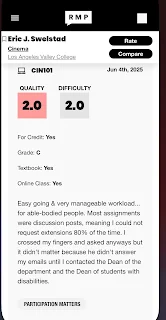In March 2025, Studio Enterprise—the online program manager behind South University—published an article titled “A New Era for Higher Education: Embracing Deregulation Amid the DOE’s Transformation.” Written in anticipation of a shifting political landscape, the article framed coming deregulation as an “opportunity” for flexibility and innovation. Studio Enterprise CEO Bryan Newman presented the moment as a chance for institutions and their contractors to do more with fewer federal constraints, implying that regulatory retreat would improve student choice and institutional agility.
What was framed as a strategic easing of oversight has instead arrived as a form of collapse. By late 2025, the U.S. Department of Education has become, in functional terms, a zombie agency—still existing on paper, but stripped of its capacity to regulate, enforce, or even communicate. Consumer protection, accreditation monitoring, program review, financial oversight, and FOIA responses have slowed or stopped entirely. The agency is walking, but no longer awake.
This vacuum has emboldened not only online program managers like Studio Enterprise and giants like 2U, but also a wide array of entities that rely on federal inaction to profit from students. The University of Phoenix—long emblematic of regulatory cat-and-mouse games in the for-profit sector—now faces minimal scrutiny, continuing to recruit aggressively while the federal watchdog sleeps. Elite universities contracting with 2U continue to launch expensive online degrees and certificates whose marketing and outcomes would once have been examined more closely.
Student loan servicers and private lenders have also moved quickly to capitalize on the chaos. Companies like Aidvantage (Maximus), Nelnet, and MOHELA now operate in an environment where enforcement actions, compliance reviews, and borrower complaint investigations have slowed to a near standstill. Servicers once accused of steering borrowers into costly forbearances or mishandling IDR accounts now face fewer barriers and far less public oversight. The dismantling of the Department has also disrupted the small channels borrowers once had for correcting servicing errors or disputing inaccurate records.
Private lenders—including Sallie Mae, Navient, and a growing constellation of fintech-style student loan companies—have seized the opportunity to expand high-interest refinance and private loan products. Without active federal oversight, marketing claims, credit evaluation practices, and default-related consequences have become increasingly opaque. Borrowers with limited financial literacy or unstable incomes are again being targeted with products that resemble the subprime boom of the early 2010s, but with even fewer regulatory guardrails.
Hyper-deregulation has also destabilized the federal loan system itself. Processing backlogs have grown. Borrower defense and closed-school discharge petitions sit in limbo. Decisions are delayed, reversed, or ignored. Automated notices go out while human review has hollowed out entirely. Students struggling with servicer errors find there is no functioning authority to appeal to—not even the already stretched ombudsman’s office, which is now overwhelmed and under-directed.
Across the sector, the same pattern is visible: institutions and corporations functioning without meaningful oversight. OPMs determine academic structures that universities should control. Lead generators push deceptive marketing campaigns with impunity. Universities desperate for enrollment sign long-term revenue-sharing deals without public transparency. Servicers mismanage accounts and communications while borrowers bear the consequences. Private lenders accelerate their expansion into communities least able to withstand financial harm.
Students feel the effect first and most painfully. They face rising costs, misleading claims, aggressive recruitment, and a federal loan system that can no longer assure accuracy or fairness. The collapse of oversight is not theoretical. It manifests in missed payments, lost paperwork, incorrect balances, unresolved appeals, and ballooning debt. For many, there is now no reliable path to recourse.
Studio Enterprise saw deregulation coming. What it left unsaid is that removing federal guardrails does not produce innovation. It produces confusion, predation, and unequal power. Hyper-deregulation rewards those who operate in the shadows—OPMs, for-profit chains, high-fee servicers, and private lenders—while those seeking education and mobility carry the burden.
This moment is not an evolution. It is an abandonment. Higher education is drifting into an environment where profit extraction flourishes while public protection evaporates. Unless new sources of oversight emerge—federal, state, journalistic, or civic—the most vulnerable students will continue to pay the highest price for the disappearance of the referee.
Sources
Studio Enterprise, A New Era for Higher Education: Embracing Deregulation Amid the DOE’s Transformation (March 2025).
HEI archives on OPMs, for-profit colleges, and regulatory capture (2010–2025).
Public reporting and advocacy analyses on student loan servicers, including Navient, MOHELA, Nelnet, Aidvantage/Maximus, and Sallie Mae (2015–2025).
FOIA request logs, non-responses, and stalled borrower relief cases documented by HEI and partner organizations (2024–2025).
Federal higher education enforcement trends, 2023–2025.




